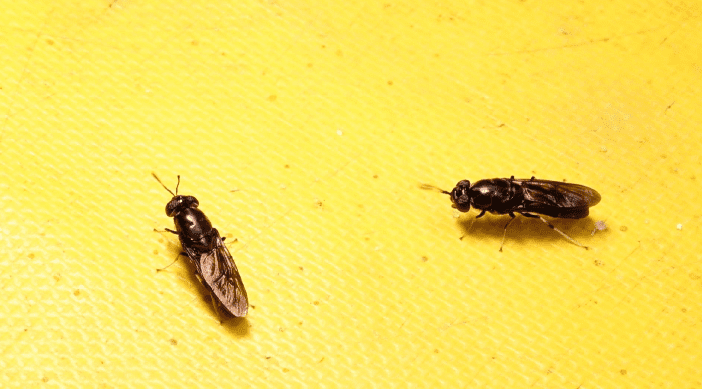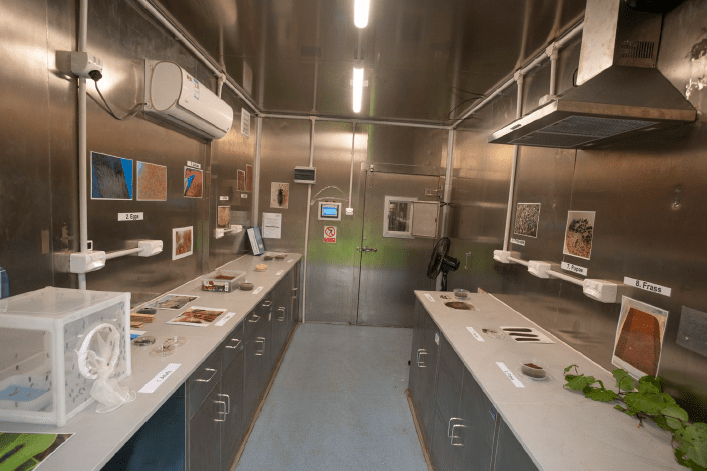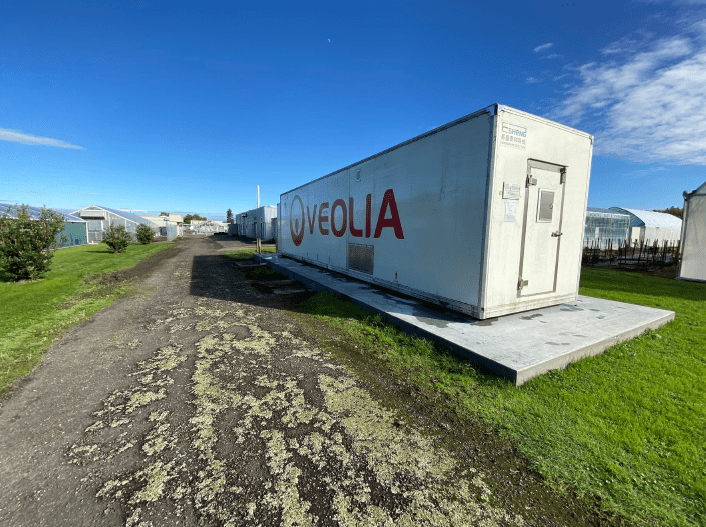
Introduction
In this article, Veolia New Zealand tells us about their pioneering insect pilot project - a New Zealand first. This initiative aims to validate insect bioconversion, using the non-invasive black soldier fly, as a means to transform organic by-products into animal feed and create a truly local circular economy. By doing so, Veolia is not only demonstrating its commitment to ecological transformation but also offering a potential solution to New Zealand's sustainability challenges.
The Sustainable Benefits of Insect Protein
Insect protein addresses two crucial global issues. Firstly, it tackles the challenges of food waste by utilising organic by-products that may otherwise go to landfill. Secondly, it contributes to reducing emissions associated with farming traditional protein sources, such as overfishing and deforestation.
The process of bioconversion through insects involves converting organic waste from the food, beverage, and agriculture sectors into protein-rich animal feed by farming edible insect larvae. Veolia has already successfully implemented this process in their industrial-scale facilities in France and Malaysia, where thousands of tons of organic by-products are converted into high-quality and certified insect meal, insect oil, and frass.

The Pilot Project
Veolia's six-month pilot project, co-financed by the Ministry for Primary Industries under the Sustainable Food and Fibre Futures fund, is being conducted in collaboration with the New Zealand Institute for Plant and Food Research and Massey University. The primary objective of this project is to determine the suitability of the solution in New Zealand.
During the trial, Veolia is engaging with various manufacturing sectors, including dairies, vegetable and fruit growers, beverage makers, and industrial bakeries. By testing different recipes, we aim to ensure that the findings of the project will be applicable to a broad spectrum of industries. This comprehensive approach has the potential to transform waste management practices across these sectors.
Addressing New Zealand's Sustainability Challenges
New Zealand faces several sustainability challenges, including the long-term management of organic waste and the need for local sources of feed for pets, livestock and aquaculture. Diverting waste and converting it into useful products contributes to a more efficient and sustainable use of resources. This circular approach reduces final waste generation, conserves resources, and minimises environmental harm. Moreover, bioconversion provides a solution by providing reliable sources of feedstock to address crucial industry issues such as quality, sustainability, and economics. organic waste and the need for local sources of feed for pets, livestock and aquaculture.
Bioconversion aligns with the principles of a circular economy. It offers a sustainable solution to the waste industry's most pressing challenges to reduce its greenhouse gas emissions and lessen its environmental impact, contributing to the overall sustainability goals of New Zealand.
Furthermore, the project's success could position Aotearoa New Zealand as a global leader in the circular economy and the upcycling of organic waste.

Veolia's Commitment to Nature-Based Solutions
Veolia is a global leader in ecological transformation. With 170 years of experience, we offer tailored solutions to the waste, water and energy challenges for businesses and communities globally. Our focus is on maximising resource recovery, minimising environmental impact, and promoting sustainability through advanced technologies and expertise.
The co-funding of this project by the New Zealand Ministry for Primary Industries underscores the importance of collaboration in achieving ecological transformation. By working together, Veolia and the New Zealand government are paving the way for a more sustainable and environmentally friendly waste industry.
Conclusion
Veolia's insect pilot project represents a promising venture that could significantly impact New Zealand and its waste industry. Through the bioconversion of organic waste into valuable resources, we are exemplifying our principles of a circular economy. The project's potential to address New Zealand's sustainability challenges, such as organic waste management and local feedstock supplies, is substantial.
By pioneering the use of insects as a means of bioconversion, Veolia is offering a more sustainable alternative to traditional protein sources. This innovative approach has the potential to transform waste management practices across various manufacturing sectors, contributing to a more sustainable and environmentally friendly future for New Zealand.
The outcomes and advantages of the project extend beyond individual companies. The waste industry as a whole can benefit from enhanced sustainability, economic opportunities, improved waste management practices, and compliance with regulatory standards. By embracing the possibilities presented by the insect pilot project, the waste industry can play a pivotal role in building a more sustainable New Zealand.
